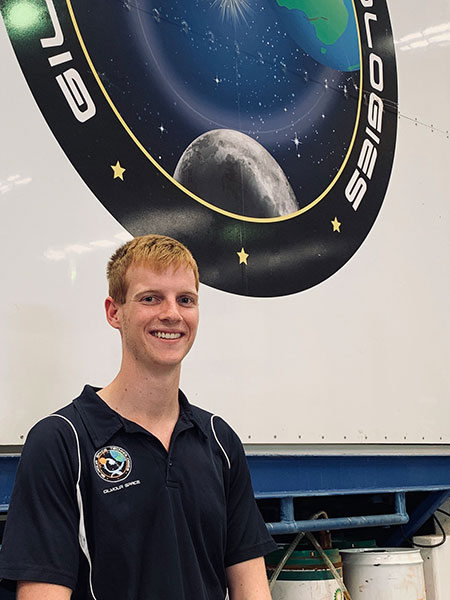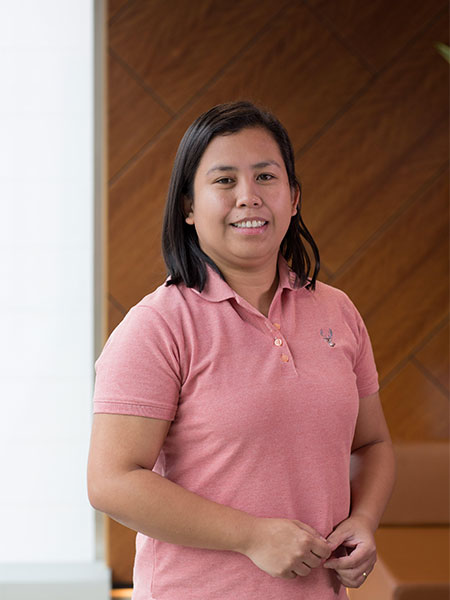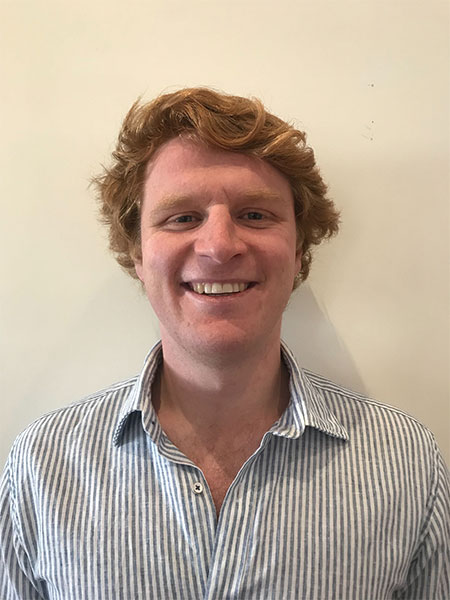The Australian Space Agency talks to three early career space engineers about their work.
The national space sector will grow rapidly between now and 2030, opening doors to a range of job possibilities. Meet three Australian space professionals — Nick, Dionie and Jack — to learn about a few.
Nick McLean: Propulsion Engineer at Gilmour Space

Gilmour Space develops launch vehicles powered by lower cost hybrid propulsion technologies, to give Australian companies access to space. Nick helps develop the rocket engine that serves as the primary thrust mechanism for launch.
Nick studied Mechanical Engineering and Physics so he could experience the best of both worlds.
“I chose physics because I needed to know how the universe worked, but I didn’t want to miss out working on a large project with a more tangible outcome.”
Nick never imagined working for a rocket company, but now describes this field of engineering as ‘addictive’.
“Each day at work is a different challenge. I'm either designing and analysing on the computer or frantically building or modifying components to meet a tight deadline.
“Space engineering is the ultimate engineering challenge”, Nick explains. “It relies on developing a structural, chemical, electrical and software understanding. If you enjoy problem solving, there is no better industry to join.”
Dionie No-ot: Software Engineer at Fleet Space

Fleet Space connects the Internet of Things around the world using a massive fleet of small low cost satellites to enable farming technology as one of its many uses. Dionie is a software engineer who designs and develops software for satellite payload and portal devices.
Dionie studied a Bachelor of Science (Computer Science) after having a strong liking for mathematics and science in school. She has worked as a software engineer for more than 15 years.
At Fleet Space she loves learning about new technologies, trouble shooting and finding solutions to complex problems.
“A day for me involves research, design, implementation and completion of code reviews for software. It also involves investigating coding issues to find the root cause of the problem. I also collaborate with other software engineers to develop better and more efficient user solutions.
“Every project and company I’ve worked with has a different set of challenges and opportunities. This makes software engineering fulfilling, rewarding and never boring.”
Jack Rintoul: Systems and Test Engineer at Inovor Technologies

Inovor Technologies is a satellite design company that provides specialised small satellite solutions for Earth imaging and space situational awareness. These satellites can detect changes on land, including floods and Earthquakes, and in space by monitoring debris and objects. Jack Rintoul makes sure customer requirements are met in the design and development of tests so satellites successfully operate in orbit.
Jack began his career path studying Mechanical Engineering majoring in Aerospace.
“I’ve always been fascinated in the design of air planes and systems, but studying made me realise how diverse the aerospace industry is.”
His interest in satellites took flight after a course in orbital dynamics and an internship with Optus Satellites. This later led to him applying for a role at Inovor Technologies and landing the position.
“No day is the same at Inovor! Recently I’ve undertaken analysis to make sure satellites generate enough power to function in orbit. I’m also developing a process to ensure satellite contact immediately after launch.
“It’s very satisfying seeing a list of requirements at the start of a project develop into a complex satellite system, ready to launch. I get to work with lots of different people from various teams which is fantastic, too.”
Space careers
Nick, Dionie and Jack recommended interning, volunteering and attending space events as great ways to make connections to open up future job opportunities. If you enjoy problem solving, strong collaboration and are curious about the way things work, a career in space could be for you. #ConsiderSpace

